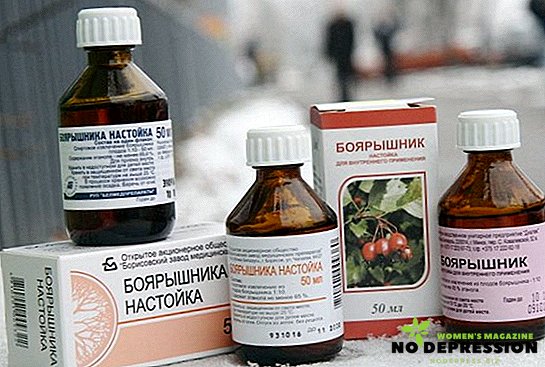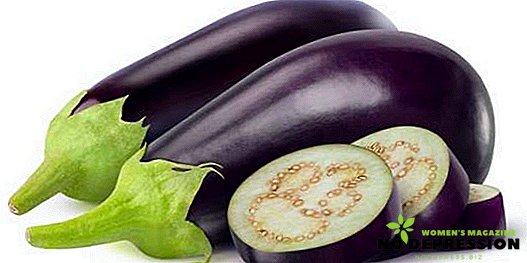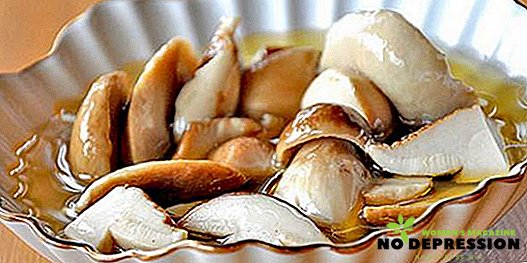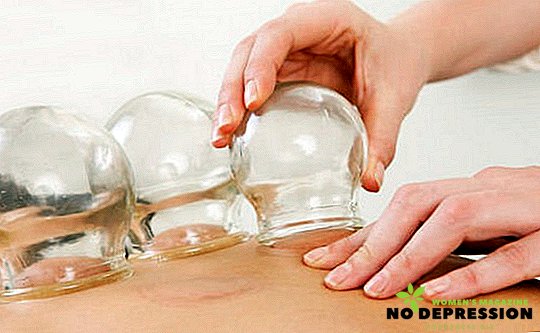The kidneys are one of the most important organs of the life support of the human body. If there are any changes in the functionality of the kidneys, this affects the work of the whole human body.
How do kidneys hurt, what are the symptoms of this, how to treat them? This will be discussed further. So, the symptoms of kidney disease are divided into two groups: general and local.
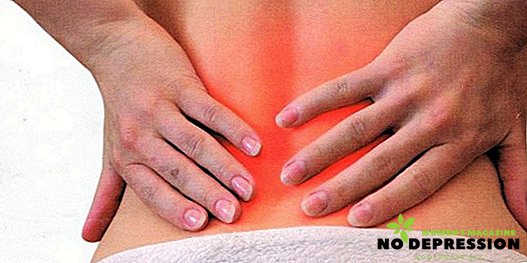
Common symptoms of kidney disease
- pale skin of the face;
- headaches;
- decreased appetite;
- "bags" under the eyes in the morning;
- feeling chill;
- high blood pressure;
- weakness in the whole body, malaise.
Local symptoms of kidney disease
- pain in the lower back (lumbar), talking about the signs of urolithiasis, possible kidney tumors, kidney infarction;
- the occurrence of pain in the abdomen on one side, extending down the abdomen, towards the pubis and upper thigh, indicate the presence of renal colic, in which you simply need to seek medical help;
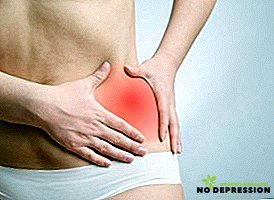
- the color and consistency of the excreted urine changes (it may be muddy, with a brown tinge, blood-streaked, pale, or vice versa of a bright yellow color);
- hematuria;
- violation of the normal amount of urine excreted;
- discomfort when urinating, and after feeling a noticeable relief;
- redness on the skin in the area of the kidneys;
- swelling in the lower back is also diagnosed;
- frequent urge to urinate, which ends in a couple drops;
- swelling of the legs and arms.
In some cases, other symptoms of kidney disease are diagnosed, which manifest themselves only with the formation of a particular disease.
Important! If you find any symptoms of kidney disease, you should immediately consult a doctor and undergo a full diagnostic examination. Any kidney disease can result in disastrous consequences for the whole body.
Causes of pain (diseases that hurt the kidneys)
Urolithiasis disease
Urolithiasis manifests itself by the presence of renal colic, in which there is severe acute pain in the abdomen, descending down the ureter into the scrotum (in men) and in the labia (in women), sharply radiating to the upper thigh.
This disease is formed in cases when a stone is separated from the renal pelvis and clogs the ureter, and injuries appear on the walls of the ureter. An intensified contraction of the urinary tract begins to occur.
 As a result, there is a violation of the processes of urine excretion, due to the formed obstacles. There is a strong irritation of the nerve endings of the ureter and the pelvis, which causes such severe pain syndromes.
As a result, there is a violation of the processes of urine excretion, due to the formed obstacles. There is a strong irritation of the nerve endings of the ureter and the pelvis, which causes such severe pain syndromes.
When reinforcing renal colic, a person cannot find a place for himself from unbearable pain, causing a feeling of terrible discomfort and fear. There may also be fever, blood pressure, nausea, and in some cases, vomiting, dizziness.
It also disrupts the normal amount of urine excreted and increases the number of urge to urinate. Urine changes its consistency and color (blood veins can be observed, and after the end of an attack of renal colic, small grains in the form of sand stand out). With renal colic, you should not postpone the visit to the urologist.
Inflammatory processes
Inflammation of the kidneys is called pyelonephritis. It can be either unilateral, when one kidney is affected, or bilateral, with inflammation of two kidneys at once. Pyelonephritis is accompanied by the following symptoms:
- feeling hot, sharply turning into chills;
- increased body fatigue;
- loss of appetite, or even refusal to eat;
- pain in the affected kidney (or both sides, with bilateral pyelonephritis), which have aching character;
- feeling of heaviness.
In cases where the kidneys become inflamed with a urinary tract disease, symptoms such as increased urge to urinate, which are accompanied by a feeling of pain and a strong burning sensation.
- With increased physical exertion of the back, as well as during lifting, pain may occur on the left side of the waist, indicating the presence of a disease such as nephroptosis;
- Glomerulonephritis.
This disease is quite common, occurring against the background of other diseases associated with streptococci (sore throat, acute respiratory infections, poisoning). In glomerфри nephritis, there is a change in color, the excreted urine to a dark brown shade, as well as high blood pressure and increased swelling of the legs, hands, and face.
Inflammation of the kidneys is accompanied by the formation of antibodies, which begin the processes of self-destruction. With the treatment of this disease in any case, you can not pull, be sure to see a doctor.
How to alleviate the condition, prevent attacks of pain
 If you experience unexpected attacks of renal colic, which cause severe pain, you should use antispasmodics to relieve the patient's condition. To relieve pain, it is best to use Baralgin, Ketorolac, Tempalgin, or No-silo (if in pills, you can give the patient several pieces at once).
If you experience unexpected attacks of renal colic, which cause severe pain, you should use antispasmodics to relieve the patient's condition. To relieve pain, it is best to use Baralgin, Ketorolac, Tempalgin, or No-silo (if in pills, you can give the patient several pieces at once).
In addition, in order to relieve an attack of renal colic (if an accurate diagnosis has already been made), a warm heating pad can be applied to the lower back, which will relieve ureteral spasm and the output of calculus. Then you need to call an ambulance.
How to treat the kidneys: traditional medicine, drugs
When contacting specialized clinics, doctors initially prescribe a full course of examination, for making an accurate diagnosis. In inflammatory processes, antibiotics are most often prescribed.
Treatment begins with less active medicinal substances belonging to the aminopenicylin group. This group of drugs very effectively fights many bacteria. Even regular penicillin can cope with a disease like pyelonephritis in pregnant women.
If patients are intolerant to penicillin preparations, cephalosporins are prescribed. But, it should be noted that they are contraindicated in pregnant women and patients with renal insufficiency.
In addition to the above drugs, in medicine for the treatment of kidneys are also used:
- Fluoroquinols;
- Erythromycin;
- Ciprofloxacin;
- Vitamin C;
- Diuretics.
Important! It is not recommended to use any drugs without a doctor's prescription and to self-medicate, this can lead to serious consequences and harm the entire body.
In the event that you cannot find a prescribed medication by a doctor in pharmacies, then you do not need to look for another replacement yourself, but you should again consult with your doctor.
When treating kidney diseases, the daily regimen plays a very important role. In the first days of treatment, the patient is obliged to stay on bed rest until his general condition, body temperature and blood pressure are normalized.
 Appointed a sparing diet and drink plenty of fluids for the fastest removal of bacteria from the body, which allows you to stop the inflammatory process.
Appointed a sparing diet and drink plenty of fluids for the fastest removal of bacteria from the body, which allows you to stop the inflammatory process.
Then, diuretic preparations are prescribed on a plant basis, and detoxification therapy is carried out.
Treatment can be carried out by various methods, respectively, for each patient a certain set of drugs is selected to eliminate the causes of the disease and restore kidney function.
Treatment of exacerbated periods of various diseases may require inpatient treatment, but if you do not start a particular disease, you can receive treatment at home. The main thing to follow all the recommendations and prescriptions of a doctor.
Folk remedies for the treatment of kidneys
Traditional medicine has existed for many centuries. During this time, traditional healers have collected a lot of recipes for curing various diseases, including kidney diseases.
 Cystitis and pyelonephritis can be cured with millet. To do this, rinse the millet (1 cup) with warm water, place it in a 3-liter jar and pour boiling water over it. Wrap a can with a warm towel and put in a dark place for 24 hours for intense infusion.
Cystitis and pyelonephritis can be cured with millet. To do this, rinse the millet (1 cup) with warm water, place it in a 3-liter jar and pour boiling water over it. Wrap a can with a warm towel and put in a dark place for 24 hours for intense infusion.
After the time has elapsed, the water should turn cloudy - this is a healing liquid.
Oats have a remarkable effect in the treatment of kidneys. To prepare the healing mixture, you must first wash the oats with warm water, without separating the husk. Then pour boiling water in a thermos and insist for twelve hours.
Then the ripened oats must be rubbed through a sieve, you get a kind of gruel, which must be consumed every morning without adding salt or sugar.
 Also, the kidneys can be treated by collecting herbs. Very good helps to get rid of inflammatory processes decoction of grass collection, consisting of leaves of strawberry, birch, nettle and 50-60 gr. flaxseeds.
Also, the kidneys can be treated by collecting herbs. Very good helps to get rid of inflammatory processes decoction of grass collection, consisting of leaves of strawberry, birch, nettle and 50-60 gr. flaxseeds.
It is necessary to prepare a decoction of these components and take inwards of 1 glass per day. Treatment can take a long period of time.
There are quite a few recipes for traditional medicine, but it is worth noting that not all diseases can be cured by traditional methods, therefore it is best to seek help from a medical institution from medical specialists.
What to do if your kidneys hurt during pregnancy
While carrying her baby, many women face such an unpleasant problem as pain in the kidneys. When pain syndromes appear in the lumbar region, you should immediately consult a doctor and undergo a full course of examination.
After identifying an accurate diagnosis, the doctor will prescribe a specific treatment to be followed. To use the methods of folk treatment, phyto-prescriptions are possible only in cases when they are approved by your doctor.
The course of treatment consists mainly of only those drugs that do not cause harm to the fetus:
- Phytopreparations have the mildest effect on the kidneys of a pregnant woman, providing an antimicrobial, diuretic, antispasmodic and anti-inflammatory effect;
- Sparing diet, in the diet which does not include smoked, dried, fatty, fried, spicy and sour foods;
- If acute pains are observed, then antibiotics can be taken, which are selected individually.
In order not to harm your baby and continue further successful pregnancy, you should not follow extraneous advice, and undergo treatment only under the supervision of a doctor.
Kidneys hurt after alcohol: how to treat?
Alcohol products have a strong negative effect on the entire body, causing him no small harm. The kidneys suffer the most, because they have to take the entire burden of cleansing the body from the decaying harmful substances.
If you have pain in the kidneys, you should immediately consult a doctor for diagnosis and treatment, which can prevent more harmful consequences.
The kidneys are designed so that their tissues have the ability to regenerate, so the treatment started on time, the right diet and the abandonment of alcoholic beverages will help to restore the normal performance of the kidneys.
 Due to the influence of ethyl alcohol on the kidneys, there is a problem with blood purification, therefore, often during kidney treatment, kidney cleansing is performed: hemodialysis, or peritoneal dialysis.
Due to the influence of ethyl alcohol on the kidneys, there is a problem with blood purification, therefore, often during kidney treatment, kidney cleansing is performed: hemodialysis, or peritoneal dialysis.
Too frequent use of alcohol can also lead to the formation of kidney stones. There are a number of herbs that can dissolve the stones formed in the kidneys:
- knotweed - has a powerful action in which stones are crushed;
- erva - dissolves sand and stones;
- parsley - has a powerful diuretic effect.
The following herbs can also be used to clean the kidneys:
- Birch buds;
- Nettle;
- Juniper;
- Melissa;
- Celery;
- Dill.
In order to clean the kidneys, it is necessary to take an inside glass of broth, which will contain at least 300 grams of various herbs.
Prevention
Lead a healthy lifestyle, protect your health from hypothermia and viral diseases, and you will never know what kidney diseases are.
In the next video - additional information about stones in the kidneys.



